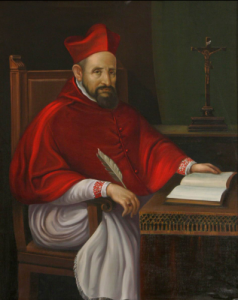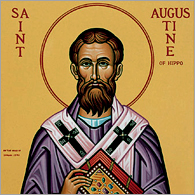 One more very good indication that these views of the movement of the sun and earth were never considered heretical in and of themselves was put forward in 1820 by the theological consultant to the Holy Office:
One more very good indication that these views of the movement of the sun and earth were never considered heretical in and of themselves was put forward in 1820 by the theological consultant to the Holy Office:The Most Rev. Grandi has said it very well (p. 89): “If this system had been judged erroneous or heretical, the Church would never have allowed it to be maintained even as a hypothesis; the reason is that otherwise those who studied it would be placed at risk of sinning against the Faith, in case they judged the system to be manifestly demonstrated.” . . . From the fact that the hypothesis was allowed, I have demonstrated (I hope incontrovertibly): (1) that the system had not been condemned as regards the astronomical motions of terrestrial rotation and translations, that is, in its foundation and per se; but (2) that it had been condemned as regards the terrestrial difficulties besetting the doctrine of its defenders. Thus, now that the system is taught without such difficulties, it is no longer subject to the condemnation . . . (Finocchiaro, Retrying, 206-7)
I think this is an important point. Even Cardinal Bellarmine had acknowledged that these things could be presented as hypothetical without harm to the faith and, if proven scientifically, one would have to modify one’s understanding of sacred Scripture (link). But this is impossible to reconcile with the view that they are per se heretical. Can one imagine Cardinal Bellarmine or any orthodox Catholic saying that it is permitted to present as an hypothesis that the bread and wine in the Mass do not become the Body and Blood of Christ and if that hypothesis could be proven scientifically then we would have to modify our understanding of Scripture? I think this gives solid support to the Commissary General’s view that “false and absurd” from the standpoint of natural philosophy/science really was foundational and formed the basis for the rejection as “contrary to Scripture” in the actual magisterial documents of the 1616 decree of the Index and the 1633 decree from the Holy Office.
If the progress of science showed later that that conception of the world rested on no sure foundation, that the spheres imagined by our ancestors did not exist, that nature, the number and course of the planets and stars, are not indeed as they were then thought to be, still the fundamental principle remained that the universe, whatever be the order that sustains it in its parts, is the work of the creating and preserving sign of Omnipotent God, who moves and governs all, and whose glory risplende in una parte piu e meno altrove; and though this earth on which we live may not be the centre of the universe as at one time was thought, it was the scene of the original happiness of our first ancestors, witness of their unhappy fall, as too of the Redemption of mankind through the Passion and Death of Jesus Christ. (In Praeclara Summorum 4; my emphasis)
the embarrassment [should] come from an obnoxious Catholic journalist who feels not the slightest guilt for ridiculing and rejecting the numerous official decisions of the Catholic magisterium of the 17th and 18th centuries that condemned heliocentrism as “formally heretical” (Response to Jared Olar from Robert Sungenis, p. 5).



